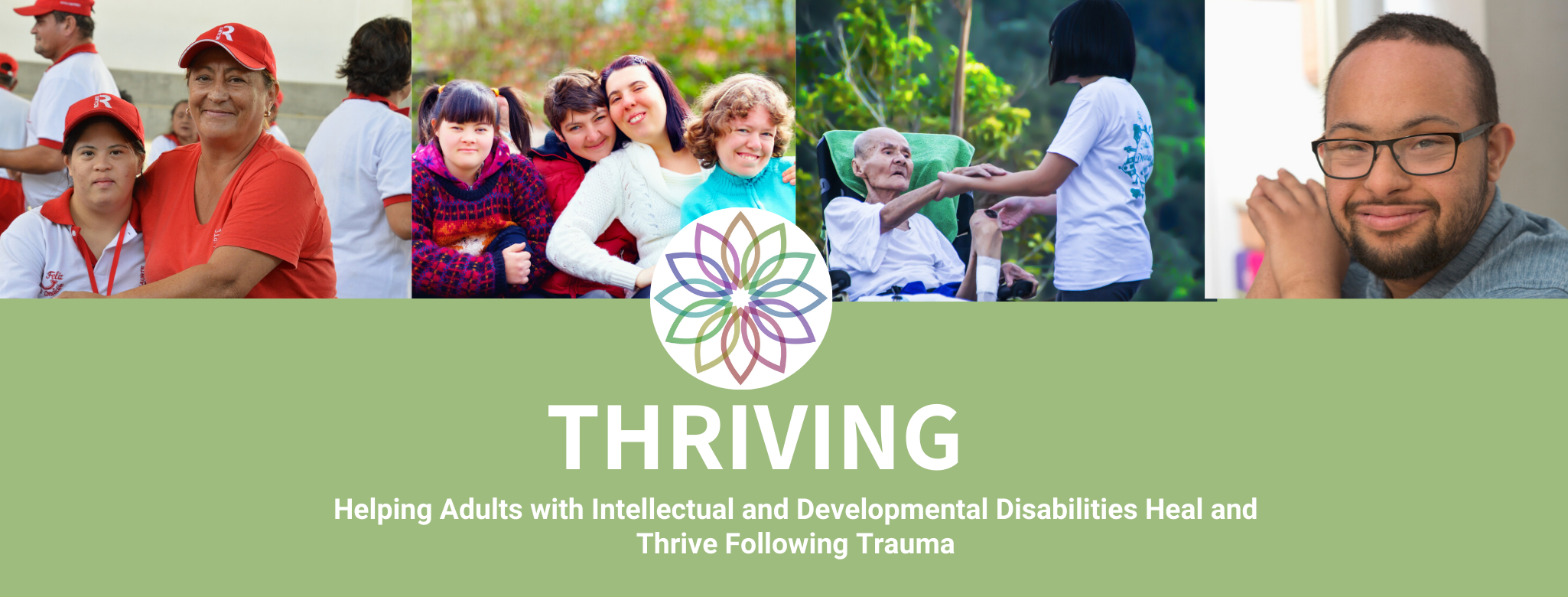
THRIVING
Helping Adults with Intellectual and Developmental Disabilities Heal and Thrive Following Trauma
- Realize the widespread impact of trauma experienced by people with intellectual and developmental disabilities
- Recognize the signs and symptoms of trauma in adults with intellectual and developmental disabilities
- Respond by changing behaviors, policies, and services to take trauma into account
- Resist re-traumatization of adults with intellectual and developmental disabilities and staff with trauma histories.
Who Should Complete THRIVING?
Health or mental health professionals, students, direct support professionals, family members, or advocates. Anyone who provides services and/or supports (formal or informal) to adults with intellectual and developmental disabilities or who is interested in doing so.
What's Involved?
The THRIVING course includes six modules. Each module contains a set of video lectures plus activities designed to help you identify strategies to apply what you are learning to your own work. In these modules, you’ll learn about the best practices and techniques to help reduce the stress faced by adults with IDD who have also experienced trauma.
By understanding development, traumatic stress, and the nuances of working with adults with IDD you’ll become more effective at your job, and find more reward in working with the people your support.
Module 1: Setting the Stage—In this module, you will learn why a Toolkit that addresses the needs of adults with IDD who have had traumatic experiences is important.
Module 2: Development, IDD & Trauma—You’ll learn about typical milestones that occur throughout a person’s lifespan and how IDD and trauma can detour those milestones and impact their behavior and health throughout the lifespan.
Module 3: Traumatic Stress Responses in Adults with IDD—You’ll learn about how traumatic experiences affect development generally, and adults with IDD specifically,
Module 4: Well-Being & Resilience—You’ll learn the role of protective factors—such as a secure attachment and a healing/protective environment—in enhancing a person’s well-being & resilience, and how to provide practical tools and support for caregivers and parents.
Module 5: IDD- & Trauma-Informed Services & Treatment—You will learn how to augment the protective factors of adults with IDD and their caregiving-system through IDD-informed trauma assessment & screening, and referral to appropriate trauma-informed services & treatment.
Module 6: Provider Self-Care—In the last module you’ll learn the difference between burnout, secondary traumatic stress, and vicarious trauma and steps to stress reduction and self-care.
Ready to LEARN?
Thriving Online
Ready to get started?
The THRIVING web course is a FREE self-paced online course. Start learning today how to help the people you support thrive!

